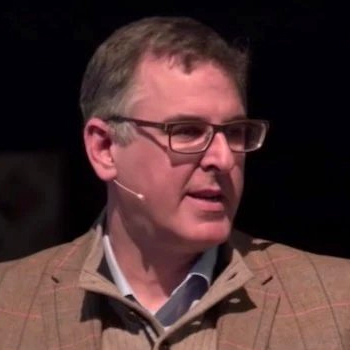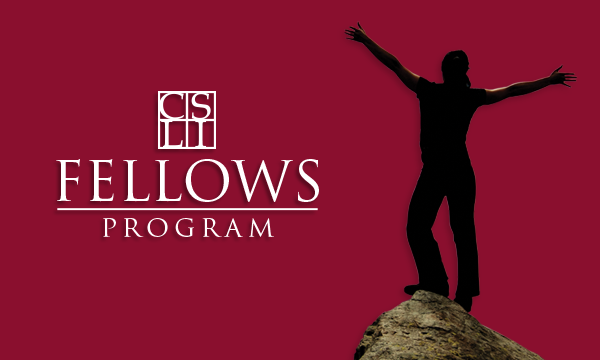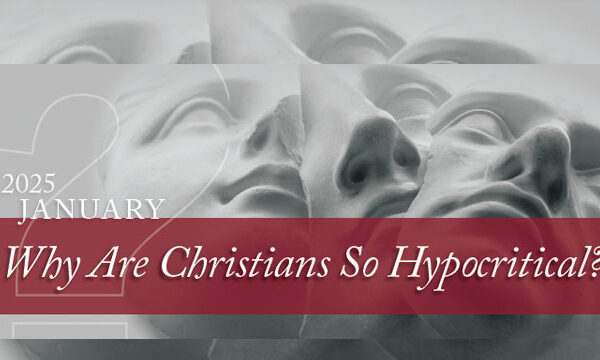Back to series



Isn’t It All Just a Matter of Faith?
Click here to open a Print - Friendly PDF
''Faith is believing what you want to believe, yet cannot prove.” Sadly many people, including many Christians, live with this definition of faith. For some it feels liberating. It means being able to believe in anything that you want to—and the more silly the belief is, the more faith you have.
It means that no explanation is required—indeed, that no explanation can be given—it is just a matter of faith.
For others, such a definition is stomach-turning. It suggests that to embrace faith is to stop thinking so that, as faith increases, reason and meaning eventually disappear. No explanations can be given, and none can be expected. To embrace faith this way is to live permanently in the dark. What is joy to one therefore, is death to another.
Sadly for both groups, the problem they have is the same. By starting with the wrong definition of faith, they have both asked the wrong questions, are therefore dealing with the wrong problem, and so have ended up with the wrong answer.
Faith is not wishful thinking. It is not about believing in things that do not exist. And so it is neither liberating by making everything believable, nor is it repellent by making meaning impossible.
So what is the right definition of faith? “Faith is being sure of what we hope for and certain of what we do not see,” the writer tells us (Hebrews 11:1). A few verses later he defines faith as knowing that God is—that He exists—and that He rewards those who earnestly seek Him. How does this help us?
Perhaps the best simple word that can be used today to translate the biblical word pistis—faith—is the word trust, or trustworthy. Suppose that you say to a friend that you have faith in them. What does that mean? First, that you are sure that the person you are talking to actually exists—that they are real. Second, that you are convinced that they are trustworthy, you can believe what they are saying and depend on them.
Similarly, when the writer of Hebrews talks about faith in God, he talks about it in this way. Faith is knowing that God is real (that He is), and knowing that you can trust His promises (that He rewards those who earnestly seek Him). You cannot trust someone who isn’t there. You cannot rely on someone if you think that their promises are not reliable.
No Wishful Thinking
This is why faith is talked about as the “substance” of things not seen and as the “evidence” of things hoped for. Both words carry with them a sense of reality. Our hope is not wishful thinking. It is saying that we know we can trust God because of who He is and the promises He has made. Faith does not make God real. Faith is a response to a real God who has made Himself known.
The question therefore is not to do with whether you are able to believe, but has God so revealed Himself so as to make Himself believable?
Ever since the Church began, the refrain has always been the same. It has never appealed for people to leap into the dark, because no such invitation is found anywhere in Scripture. Instead, it has been to step into the light. The Christian Gospel is not a message that revels in ignorance; it is about the revelation of who God is in the person Christ, so that we might know Him.
It is about stepping into the light to see things as they really are, and not as we would simply like them to be. Faith is trusting in a God who has revealed Himself, and made Himself available to us. That revelation, that God is and is trustworthy, is plain to all, we are told (Romans 1:19-21).
The problem therefore is not really about information. The problem is about whether you know God well enough, so that even when things happen in your life that you don’t understand, you have someone you can talk to who does.
 Faith is not something psychological that you can generate. It grows in strength as you get to know God more. Sadly, some people feel that the journey is not worth beginning. Even more tragically, we often start the journey and then put it on hold. Just as you are able to trust someone as you grow to know them, faith increases as you grow to know Christ.
Faith is not something psychological that you can generate. It grows in strength as you get to know God more. Sadly, some people feel that the journey is not worth beginning. Even more tragically, we often start the journey and then put it on hold. Just as you are able to trust someone as you grow to know them, faith increases as you grow to know Christ.
The answer to the issue of faith, therefore, is not whether you are able to believe in something that does not exist—which would make you insane. It is whether your relationship with God is grounded in that which is real. It is whether you know the Creator of the universe.
If you do not, then the Christian Gospel invites you to find out, and even commands you to be honest in your commitment to know that which is true and authentic.
Is Jesus real? Who did He claim to be? Did this really happen? Is He really alive today? Faith comes in response to knowing the answers to these questions.
If you do have faith in Christ, that is you know who He is and why He came into this world, don’t stop in your knowledge of Him following your initial introduction. If your relationship with God feels shallow or even forced, it is probably because a lack of time with Him means that you haven’t gotten to know Him. At critical times therefore, He seems absent. This is not because He isn’t talking to us, but because we haven’t been talking to Him.
The great joy of the Christian faith is knowing that we are engaged to the most marvelous person, Christ. One day, we will be sat at a wedding feast with him. Spend a little time getting to know Him better now—you will never regret it. “Faith is knowing and trusting God, even when you don’t want to.” Faith then is not about convenience, but about reality. Faith is our response to the God who is real and true.

Michael Ramsden
ApologistMichael Ramsden is the founder of The Oxford Centre for Christian Apologetics. He spent most of his childhood in the Middle East and later moved to the UK, where he worked for the Lord Chancellor’s Department investing funds. Michael went on to teach jurisprudence at the University of Sheffield, while doing research in law and economics. His passion is to engage with people of all backgrounds and cultures about questions of faith, which he has been doing for over twenty years. He speaks in business, academic, political, and other settings across the globe, ranging from Europe and the Middle East, to Asia and the Americas.

 COPYRIGHT: This publication is published by C.S. Lewis Institute; 8001 Braddock Road, Suite 301; Springfield, VA 22151. Portions of the publication may be reproduced for noncommercial, local church or ministry use without prior permission. Electronic copies of the PDF files may be duplicated and transmitted via e-mail for personal and church use. Articles may not be modified without prior written permission of the Institute. For questions, contact the Institute: 703.914.5602 or email us.
COPYRIGHT: This publication is published by C.S. Lewis Institute; 8001 Braddock Road, Suite 301; Springfield, VA 22151. Portions of the publication may be reproduced for noncommercial, local church or ministry use without prior permission. Electronic copies of the PDF files may be duplicated and transmitted via e-mail for personal and church use. Articles may not be modified without prior written permission of the Institute. For questions, contact the Institute: 703.914.5602 or email us.
-
Recent Podcasts
The Priority of Prayer
by Thomas A. Tarrants, Aimee Riegert on December 27, 2024The Kingdom of God moves forward through Prayer....Read More
-
Hyper-Realist Finds Faith – Spencer Durrenberger’s Story
by Spencer Durrenberger on December 20, 2024
-
First Steps to Loving and Understanding Our Jewish Neighbors
by Aimee Riegert, Randy Newman on December 13, 2024
-
Recent Publications
Why Are Christians So Hypocritical?
by Christopher L. Reese on January 1, 2025Oh, the hypocrisy of those Christians—they talk so...Read More
-
How Artists and Their Art Can Point Us to the Creator
by Russ Ramsey on December 2, 2024
-
What about Jesus’s Childhood?
by Jim Phillips on December 1, 2024
0
All Booked
0.00
All Booked
0.00
All Booked
23903
Fellows Program – Applications Available on February 1st!
https://www.cslewisinstitute.org/?event=fellows-program-applications-available-on-february-1st&event_date=2025-02-01®=1
https://www.paypal.com/cgi-bin/webscr
2025-02-01

Next coming event
Days
Hours
Minutes
Seconds
Fellows Program – Applications Available on February 1st!
On February 1, 2025 at 7:00 amTags
Speakers

Michael Ramsden
Apologist
Team Members

Michael Ramsden
ApologistMichael Ramsden is the founder of The Oxford Centre for Christian Apologetics. He spent most of his childhood in the Middle East and later moved to the UK, where he worked for the Lord Chancellor’s Department investing funds. Michael went on to teach jurisprudence at the University of Sheffield, while doing research in law and economics. His passion is to engage with people of all backgrounds and cultures about questions of faith, which he has been doing for over twenty years. He speaks in business, academic, political, and other settings across the globe, ranging from Europe and the Middle East, to Asia and the Americas.





